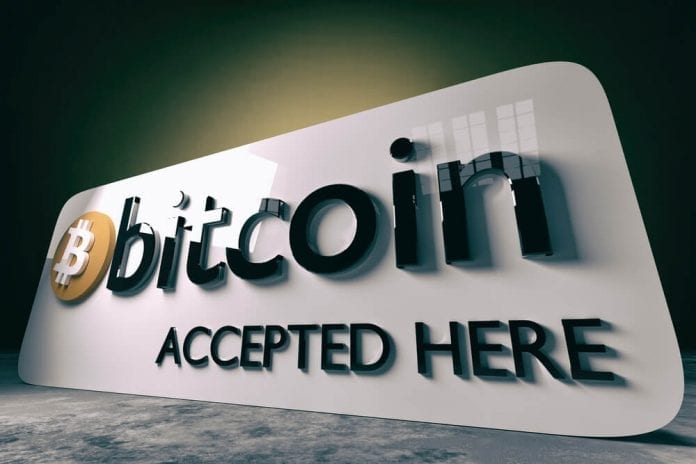Bitcoin (BTC) is a digital currency that is distributed electronically. It represents a decentralized P2P network. An individual or a person cannot control it. The quantity of bitcoins is minimal; only 21 million bitcoins can be created.
1. Who created Bitcoin?
An anonymous developer introduced it under the pseudonym Satoshi Nakamoto, and that was in 2009. There have been many rumors about the true identity of the creators of bitcoin. However, everyone mentioned in those rumors has publicly denied them.
In mid-2010, Nakamoto moved on to other things, leaving bitcoin in the hands of several prominent members of the BTC community. Satoshi has appointed Gavin Andersen as the lead developer.
2. How to Get Bitcoins?
The easiest way is to shop. There are different software you can use, like bitcointrader2.com., and that is our top choice. Bitcoins are available through various exchanges, but can also be purchased directly from other people in the market. They can be paid in cash, credit or debit cards, or even some other cryptocurrency. First of all, you need a BTC wallet.
There are different options, but the basic ones can be reduced to an online wallet and software wallet on your computer hardware. Neither option is entirely secure; equipment can be damaged, while an online portfolio is prone to hacking. Also, there are mobile wallets, which are simplified because of the vast storage capacity and required to carry an entire block (blockchain).
3. How is BTC taxed?
BTC has yet to be legalized by the competent authorities, but some tax authorities already recognize its importance and propose specific regulations. These regulations vary considerably from country to country.
For example, the US Internal Revenue Service treats BTC and all other prominent digital currencies as assets and not as currencies. Every taxpayer who sells goods and services for bitcoins must include the value of the bitcoins received in their annual tax return. Miners are also subject to taxation, but only if it turns out that mining is successful.
According to the European Court of Justice, BTC is a currency, not an asset. Although not subject to VAT, BTC can be taxed otherwise. UK tax authorities treat BTC as a foreign currency, where each BTC case is considered based on individual facts and circumstances. As of July 2017, bitcoin sales have been exempted from consumption tax in Japan, where it is officially recognized as a payment method.
4. Is BTC a pyramid scheme?

Billionaire investor Howard Marks recently stated that digital currencies are nothing more than a pyramid scheme. He explained that the current success of digital money is based solely on the willingness to attribute value to something that doesn’t have value beyond what people would pay for it.
Those who invest in a pyramid scheme receive their own money back or that of the next investor. That is instead of the profits made by the individuals running the business. However, when it comes to bitcoin, benefits and its value come from a limited amount of coins as more people acquire coins, so stocks become scarcer, making each currency more valuable. BTC simply has nothing in common with the classic pyramid scheme.
5. What can you buy with bitcoin?

In 2009, when BTC was marketed, it was not entirely clear how and where it could be spent. Now you can buy almost anything. For example, large companies such as Microsoft and Dell receive payments at BTC for a majority of their products. You can fly with airlines such as Air Lithuania, buy theater tickets through English Theater Tickets Direct, grab a few bottles of craft beer from Honest Brew Brewery, etc.
Other options include paying for a hotel and buying property, settling bills at various bars and restaurants, joining dating sites, purchase gift vouchers, betting at online casinos, and charitable donations. Several different online markets trade in all kinds of things.
Bitcoin is a quite complex and relatively new payment process. Naturally, consumer options are still limited, but every day more and more businesses – from small, local cafes to industry giants – are accepting bitcoin payments.
Due to its continually changing exchange rate, BTC is becoming a great investment opportunity. Despite being a volatile and not-quite-recognized currency, its value has increased seven-fold over the past year, nearly reaching the $ 5,000 BTC rate.
6. Advantages
Freedom
BTC is designed with freedom in mind. Most importantly, freedom from the authorities controlling transactions, imposing fees, and disposing of people’s money. When it comes to buying things, cryptocurrencies have become a legitimate payment method in recent years. Considering the existence of numerous ‘deep-web’ markets that receive bitcoin only, some things can be bought more easily with bitcoin than any other currency.
Portability
One of the basic features of money is portability, which means it’s easy to carry and use. Since BTC is entirely digital, any amount of money can be stored online.
Cryptocurrencies give us the freedom to send and receive money by scanning a QR code or clicking on an online wallet. It doesn’t take long; there are no high fees, and money goes from one person to another without unnecessary intermediaries. Internet access is all you need.

No cards
The payment card industry includes debit, credit, and prepaid cards, electronic wallets, ATM and POS cards, and other related businesses. It is made up of all organizations that store, process and transmit cardholder information, there are strict security regulations, and most major card brands are part of it.
As a result, customers receive lower fees, the opportunity to expand their markets and reduce their administrative costs.
Security and control
Bitcoin users can control their transactions: no one can withdraw money from a valid account without your knowledge and consent, as sometimes happens with other forms of payment, and no one can steal your payment information from merchants.
Transparent and neutral
Every single transaction, as well as any information related to it, is always available to anyone in the blockchain, can be checked and used in real-time. BTC protocol is encrypted and, therefore, cannot be controlled and manipulated by any person or organization. No one could ever fully control the network because it is decentralized. That is why BTC will always be neutral, transparent, and predictable.

Inability to forge
One of the most popular ways of forging in the digital world is to use the same money twice, making both transactions fraudulent. It’s called “double spend.” BTC, like many other cryptocurrencies, uses blockchain technology and with several other consensus mechanisms built into all BTC algorithms to counter this.
7. Disadvantages
Legal issues
Its legal status varies drastically from country to country. In some states, its use is encouraged, while in others, it is illegal and forbidden.
Many expressed concern about the attraction of bitcoin to criminals; some news reports indicate that its popularity relies entirely on the possibility of spending on illegal things. Indeed, when the infamous Silk Road black market closed, bitcoin was instantly downgraded.
Level of recognition
BTC is recognized and legal in many countries. However, some of the world’s governments do not yet have regulations for it, while others have openly banned it.
Most jobs, whether small or large, are still entirely unaware of him. It is almost impossible to leave all other currencies and use BTC exclusively.

Lost code
A password is a unique alphanumeric password required to access a bitcoin wallet. Losing that code essentially means losing your wallet. However, most new wallets have backups and recovery mechanisms, with the user having to set them up before using them.
Instability
The price of bitcoin has had its ups and downs, going through various cycles of drastic jumps and lows, which some call “bubbles” and crashes. Throughout its history, BTC has gained new heights, only to sustain a significant decline immediately afterward. Its value is unpredictable, drastically, and rapidly changing, which can cause considerable financial damage to a reckless investor.
Final Word
The future of bitcoin is extremely unclear. Currently, governments and banks are unable to control BTC; it is almost unregulated. However, the larger and more popular it becomes, the more the government will endeavor to put it under control. A regulated BTC would be a completely different type of currency.









